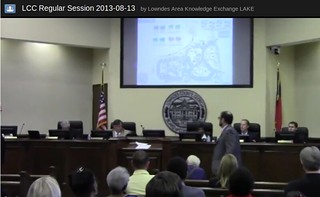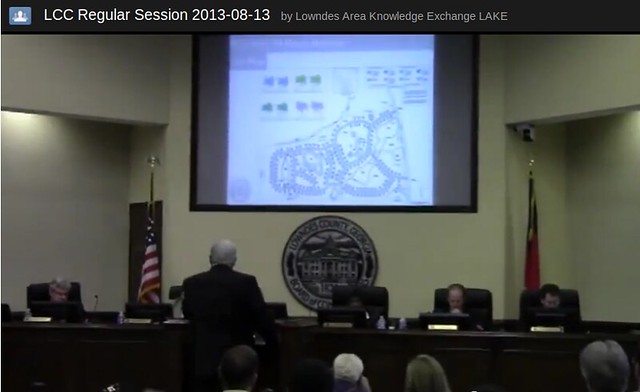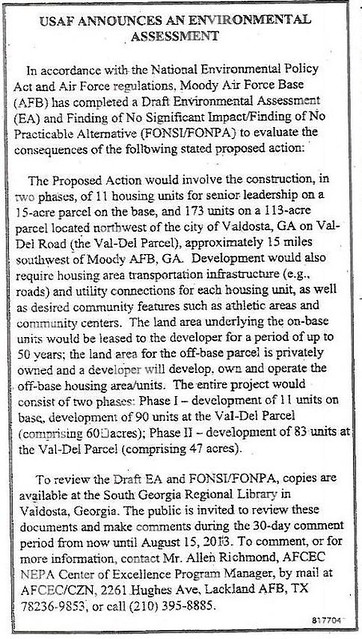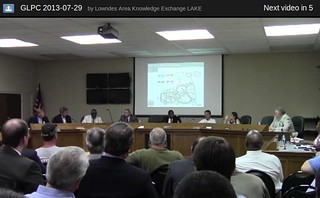 “Officers can’t even entertain guests at the houses they are living in”
said a Hahira business man,
at
the 13 August 2013 Lowndes County Commission Regular Session,
speaking in favor of
REZ-2013-09 for proposed new Moody Housing on Val Del Road.
“Officers can’t even entertain guests at the houses they are living in”
said a Hahira business man,
at
the 13 August 2013 Lowndes County Commission Regular Session,
speaking in favor of
REZ-2013-09 for proposed new Moody Housing on Val Del Road.
Previously at the Planning Commission Coombs had
asked for use of local contractors
at this new Moody Family Housing project.
Both at GLPC and at this County Commission meeting Coombs
expressed concern about what he called that “botched” previous housing
project.
(Much more detail on Magnolia Grove
here.)
This time he said he thought the new project would be
“of great economic impact in a time when it is really needed”.
What happened to his concerns about use of local contractors?
Here’s the video:
Continue reading















